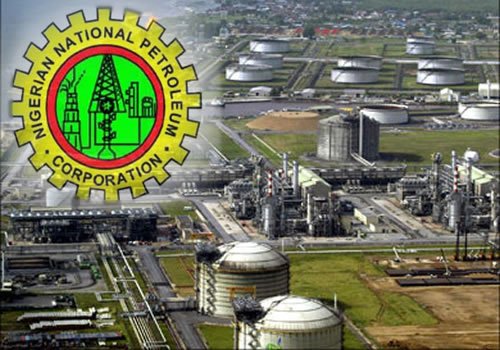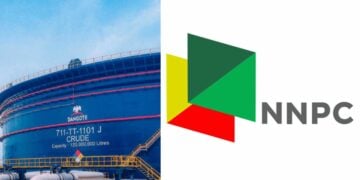BY NSE ANTHONY-UKO, Abuja
The federal government has been advised not to borrow N4 trillion to pay for fuel subsidy, which would escalate Nigeria’s already huge debt profile and further squeeze the country financially.
This is even the country has lost up to N22.68 trillion in foreign exchange earnings as result of the current crude swap regime in the last 18 months.
The National Assembly had in April approved a review of the 2022 budget, including the payment of N4 trillion as subsidy for Premium Motor Spirit (PMS), popularly known as petrol.
This amount of subsidy is the highest in the country’s history and indicates an increase of 254.3 per cent from N1.573 trillion in 2021.
Stakeholders at the Growth Initiative for Fiscal Transparency (GIFT) development dialogue on the extractive industries yesterday in Abuja noted that unless drastic measures were taken the country would be plunged into a far worse debt crisis than what it faced that culminated in the 2005 the debt relief.
The dialogue, organised by OrderPaper Advocacy Initiative with the support of the United States Agency for International Development (USAID)’s Strengthening Civic Advocacy and Local Engagement (SCALE) Project, sought to address the issues of transparency and accountability as it relates to the Petroleum Industry Act (PIA) 2021.
International development consultant, Professor Ken Ife in his presentation titled ‘Enhancing Nigeria’s Revenues Through Fiscal Reforms’ said the federal government can adopt the Saudi Aramco model to raise funds for the country rather than resorting to fresh debts.
“Saudi Arabia needed $25billion, and rather than borrow from IMF or World Bank, it opted for valuation of state owned Saudi Aramco. On getting a valuation of well over $1 trillion, it sold five per cent of the share of Saudi Aramco. As a going concern, with 1.7mbpd, with the huge gas assets and NNPC physical onshore and offshore assets and platforms, NNPC could be worth in excess of N50 trillion naira of which the federal government could sell 40 per cent in the stock market or private placement.
“It seems reasonable to carry out valuation of the crude, gas, landed and intangible assets of NNPC Ltd (which I believe would be in excess of N50 trillion) and quote it in the stock market, ensuring all and sundry, host communities, labour, oil, gas and oil marketers, citizens and corporates to partake in the public quotation.
“Through this public limited company, the citizens, the corporate community and the public shareholders can demand accountability and transparency in the corporate governance of NNPC Ltd,” he stated.
He lamented that fuel subsidy has moved from denying state governors monthly revenue to share, to having the federal government borrow from N1.2trillion to now N4trillion per annum for its payment.
“The PMS subsidy has reached a critical juncture where the government is now looking to borrow N4 trillion per year for the subsidy alone, while 50 modular refineries can be funded with N2 trillion only to refine 1million barrels a day.”
Explaining further, the international economist said, “Clearly this situation is untenable and unsustainable. A 20,000 bpd modular refinery costs $75m (N32 billion) to $95m (N40billion) to install. N2trillion (50 per cent of current subsidy of N4trillion) in a year will build 50 modular refineries with combined capacities of 1 million barrels per year. These loans will be repaid in 2 to 3 years!.
“Floating NNPC and selling share to Host and Affected communities; trade, transport and labour unions; Oil and Gas companies; Oil Marketers, Corporate and ordinary Nigerian Citizens, gives everybody a sense of belonging and ownership. NLNG model pay regular dividend because of world class management and good corporate governance. It is most unlikely that community shareholders will engage in disruptive behaviours and allow this order of pilferage, theft and vandalism. It is also unlikely that shareholders would forfeit their dividend to PMS subsidy, nor would it make sense for a private company, NNPC Ltd be asking government for such a huge subsidy.
Prof. Ife also faulted the current crude oil swap arrangement of the past 18 months which has denied the Central Bank of Nigeria (CBN) foreign earnings of $3billion per month, and compounded the forex crisis in the country, which amounts to $54 billion or N22.68 trillion at the current exchange rate of N420 to one dollar.
Also speaking, chairman, House of Representatives Committee on Public Accounts, Oluwole Oke said it is trite to state that Nigeria is a blessed nation, rich in numerous natural resources and reputed to be sitting on a bed of gas and huge deposit of oil.
However, he lamented that while many countries with similar endowments have been able to utilise these resources for the benefit of their citizens and in improving the quality of life and per capita income, Nigeria’s case is not so.
“As at today, Saudi-Aramco is the largest company on the planet in terms of revenue with about $2.332 trillion ahead of Apple, Tesla, Alphabet, Microsoft and Amazon. The technology companies have dominated this space for a long while and we have not seen any oil and gas company making the list of top 10.
“Nigeria as a country has similar potential as Saudi Arabia however, as at 2022, GDP Per Capita for Nigeria is $5,000 USD, while that of Saudi Arabia is $24, 224.
“The media has been reporting since the first quarter of 2022 that NNPC was failing in its ability to make remittance to the Federation Account, despite the current rise in price of crude oil. To say the least, all of these news are depressing to discerning minds,” Oke lamented.
He urged all Nigerians to begin to hold government officials, public finance management institutions, tax collecting and revenue generating agencies accountable for taxes remitted and with due regard to efficiency, economy and effectiveness.





